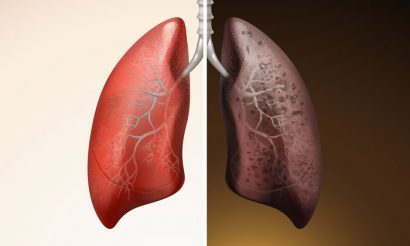FDA allows novel inhaled lung cancer treatment to commence clinical trials
Posted: 25 April 2017 | | No comments yet
North Carolina based Biomarck Pharmaceuticals has received FDA allowance to begin human trials for their patented compound BIO-11006, for adults with lung cancer.


North Carolina based Biomarck Pharmaceuticals has received FDA allowance to begin human trials for their patented compound BIO-11006, for adults with lung cancer.


Discovered by Dr Ken Adler at North Carolina State University working in partnership with Biomarck, inhaled Bio-11006 has demonstrated effectiveness on human cell cultures and animals in the laboratory. It demonstrated impressive results in adult tumours and childhood cancers, specifically, Rhabdomyosarcoma, Neuroblastoma and Osteosarcoma in children.
Safety and tolerability
BIO-11006 has shown to be safe and tolerable in over 200 adult humans that have received the drug in previous studies for lung diseases.
Back in September, at the 3rd Annual Bella’s Ball, the Live Like Bella Childhood Cancer Foundation announced their partnership with Biomarck Pharmaceuticals and their plan to offer BIO-11006 for compassionate use starting the spring of 2017 for children battling certain types of cancer.
“It is amazing news that the FDA has allowed for human trails to begin and that Biomarck is moving forward to offer BIO-11006 for compassionate use”, Dr Guillermo De Angulo, Pediatric Oncologist in Miami, mentioned on stage during the ball,
“The promise of a potential new treatment option for compassionate use in children is very promising and very much needed.”
Now that the FDA has allowed human trials, new study sites will open around the country.
Free medication
While not all cases will be eligible for compassionate use in children, Biomarck and Live Like Bella intend to help as many children as they can with free drugs for cases that qualify and have not responded to approved treatment. Currently, BIO-11006 is administered via inhaled nebulizer and promises to be easy to take, particularly for children who normally receive cancer treatment intravenously.




